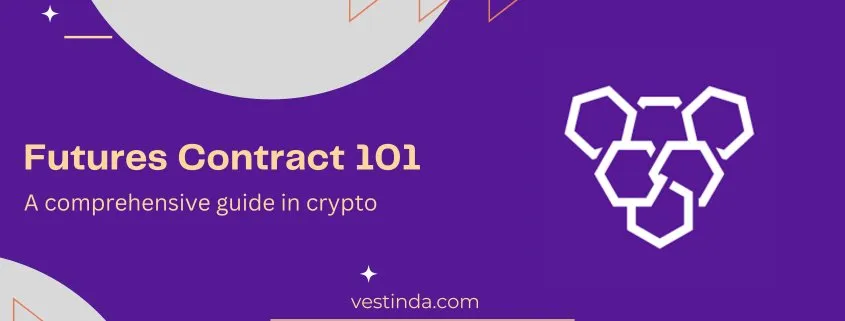Are you ready to dive into the world of crypto futures trading and discover how a futures contract can supercharge your investment strategy? In this comprehensive guide, we’ll break down everything you need to know about futures contracts in the realm of cryptocurrencies. Whether you’re a seasoned trader or just starting out, understanding what is futures trading and how to trade futures is crucial. We’ll walk you through the fundamentals, explore the ins and outs of commodities futures trading, and share the best crypto strategies to help you navigate this dynamic market. Let’s embark on this exciting journey into the world of crypto futures.
Article summary
What is a Futures Contract?
A futures contract is a financial agreement that obligates the parties involved to buy or sell a specified asset, like commodities or cryptocurrencies, at a predetermined price on a future date. These contracts serve as powerful tools in managing risk and speculating on price movements.
Futures contracts are standardized, meaning they have set terms, including contract size, expiration date, and the agreed-upon price, which are determined by the exchange where they are traded. They enable investors to speculate on the future price of an asset without needing to own the asset itself.
This type of contract is widely used in various financial markets, including commodities and crypto. Understanding how futures contracts work is essential for anyone looking to engage in futures trading and is a crucial aspect of crafting a successful crypto futures trading strategy.
How do futures contracts work?
Futures contracts are essential financial tools that allow traders to speculate on the price movements of various assets, such as commodities, cryptocurrencies, or stock market indices. They work by establishing a binding agreement between two parties. One party agrees to buy, and the other agrees to sell a specific quantity of an underlying asset at a predetermined price on a future date. These contracts serve multiple purposes, including hedging against price fluctuations and profiting from price changes.
To enter into a futures contract, you’ll need a brokerage account and sufficient capital to cover the initial margin requirement. This margin is a fraction of the total contract value, allowing you to control a more substantial position than your initial investment. The leverage provided by futures trading can amplify both your potential gains and losses, making it essential to manage your risk carefully.
Futures contracts involve two primary positions: long and short. A long position involves buying a contract with the expectation that the asset’s price will rise. In contrast, a short position entails selling a contract, anticipating a price decrease. Profits or losses are realized based on the difference between the contract’s opening and closing prices.
Additionally, traders often use options in conjunction with futures contracts to hedge their positions and minimize risk. Options provide the right, but not the obligation, to buy or sell an underlying asset at a specified price. This flexibility is valuable for safeguarding against adverse market movements.
In summary, futures contracts offer traders a way to capitalize on price movements in various assets. Whether you’re interested in commodities, cryptocurrencies, or other markets, understanding the mechanics of futures trading and implementing risk management strategies is crucial to navigate this dynamic financial landscape effectively.
How to Trade Futures for Beginners
Choose a Reliable Broker
Start by selecting a reputable brokerage firm that offers futures trading services. Make sure it provides access to the specific futures markets you’re interested in, whether it’s commodities like gold or the exciting world of crypto futures.
Educate Yourself
Before diving in, take the time to understand the basics of futures trading. Learn how futures contracts work; they’re agreements to buy or sell a specific quantity of an asset at a predetermined price on a future date. For instance, a gold futures contract allows you to agree to buy or sell a certain amount of gold at a set price in the future.
Determine Your Budget
Decide how much capital you’re willing to invest in futures trading. Keep in mind that futures trading often involves leverage, which can amplify both gains and losses. It’s crucial to start with an amount you can afford to risk.
Select Your Market
Choose the market you want to trade in. For example, if you’re interested in cryptocurrencies, you might opt for Bitcoin futures. If you prefer traditional commodities, consider trading gold or oil futures.
Develop Your Strategy
Craft a trading strategy that suits your risk tolerance, knowledge, and financial goals. Your strategy may involve decisions like the duration of your trades (short-term or long-term) and whether you’ll speculate on price increases (going long) or decreases (going short).
Risk Management
Protect your investments by setting up risk management measures. This might include placing stop-loss orders to limit potential losses on a trade. For example, if you’re going long on Bitcoin futures and you set a stop-loss order at 10% below your entry price, your potential loss is limited if the price drops.
Consider Options
Options can be valuable tools for managing risk in futures trading. For instance, if you’re trading gold futures and want to hedge against a price drop, you can buy a put option that gives you the right to sell your gold futures contract at a specified price. This can help limit potential losses.
Differences Between Futures and Options
Futures and options are popular tools in the world of trading, and while they share some similarities, they have distinct differences that can significantly impact your trading strategy. In this section, we’ll explore these differences, shedding light on their unique characteristics.
Futures Contracts: Commitment to Buy or Sell
Futures contracts obligate you to buy or sell a specific asset at a predetermined price on a specified future date. These contracts are commonly used in commodities like gold or in the fast-evolving realm of crypto futures, such as Bitcoin futures. When you enter into a futures contract, you’re making a commitment to buy or sell the asset, and it’s essential to be prepared to follow through.
Options: The Right, but Not the Obligation
Options, on the other hand, provide you with the right, but not the obligation, to buy or sell an asset at a specified price, known as the strike price, within a predetermined time frame. This flexibility allows you to choose whether to execute the trade based on market conditions. For example, if you’re trading crypto options, you can buy a call option if you expect the price of a cryptocurrency to rise. If it doesn’t, you’re not obliged to purchase the asset.
Risk and Reward
The key difference between futures and options lies in the level of commitment. Futures contracts come with greater commitment and potential for higher risk and reward. If the market moves against your position, you could incur significant losses. Options offer more strategic flexibility, allowing you to mitigate risk by choosing not to exercise the option if it doesn’t align with your expectations.
Best platforms for futures trading
- TD Ameritrade (Thinkorswim): Thinkorswim offers a powerful and user-friendly platform for futures trading. It provides a wide range of tools for technical analysis and an array of educational resources for traders.
- E*TRADE: ETRADE’s Power ETRADE platform is known for its advanced trading tools and research capabilities. It offers a smooth trading experience for both beginners and experienced traders.
- Interactive Brokers: Interactive Brokers is a well-regarded platform that provides access to a vast range of global futures markets. It’s known for its low-cost pricing and comprehensive research tools.
- NinjaTrader: NinjaTrader is a popular choice among active futures traders. It offers advanced charting, analytics, and automated trading options. It’s particularly suitable for day traders.
- TradeStation: TradeStation is recognized for its advanced charting and analysis tools. It caters to both beginners and experienced traders, with customizable workspaces and powerful scripting options.
- Charles Schwab: Charles Schwab’s StreetSmart Edge platform offers a comprehensive suite of tools for futures traders. It provides market research, technical analysis, and risk management features.
- CME Group: For those looking for direct access to futures contracts, CME Group’s platform is an excellent choice. It specializes in futures and options trading across a wide range of asset classes.
- Tastyworks: Tastyworks is a user-friendly platform that focuses on options trading but also supports futures trading. It offers competitive pricing and an intuitive interface.
- AMP Futures: AMP Futures is a platform known for its low-cost futures trading. It provides access to various futures exchanges and offers excellent customer support.
- Nadex: Nadex is a platform specializing in binary options and spreads on various markets, including commodities and stock indices. It’s well-suited for traders interested in risk-limited strategies.
Is Crypto Futures Legal?
Crypto futures trading has gained significant attention, with Bitcoin futures and other crypto assets in the spotlight. The legal status of crypto futures largely depends on your location. In many countries, futures trading, including crypto futures, is legal and regulated, subject to specific rules and requirements.
For instance, the United States has recognized Bitcoin futures as legal financial instruments, regulated by the Commodity Futures Trading Commission (CFTC). However, it’s essential to research the regulations in your country or region, as some nations may have restrictions or bans on crypto-related activities. Always ensure that you comply with local laws and use reputable platforms when engaging in crypto futures trading to operate within legal boundaries and protect your investments.
Is Crypto Futures Profitable?
Crypto futures can be profitable, but success isn’t guaranteed. Profitability depends on various factors, including your trading strategy, market knowledge, risk management, and timing. Crypto futures offer the potential for substantial gains due to their volatility, but this volatility also comes with increased risk. Traders can profit from both rising and falling markets by going long or short. It’s crucial to have a well-defined strategy, stay informed about market trends, and implement effective risk management techniques. While some traders have reaped significant rewards, others have incurred losses. It’s essential to approach crypto futures trading with caution and diligence.

Ebiere Watchman is a prolific writer specialized in web 3.0 and finance. Ebiere’s experience includes research projects, sales copywriting, and storytelling. She prides herself in crafting impeccable content to drive mass adoption in cryptocurrency.


